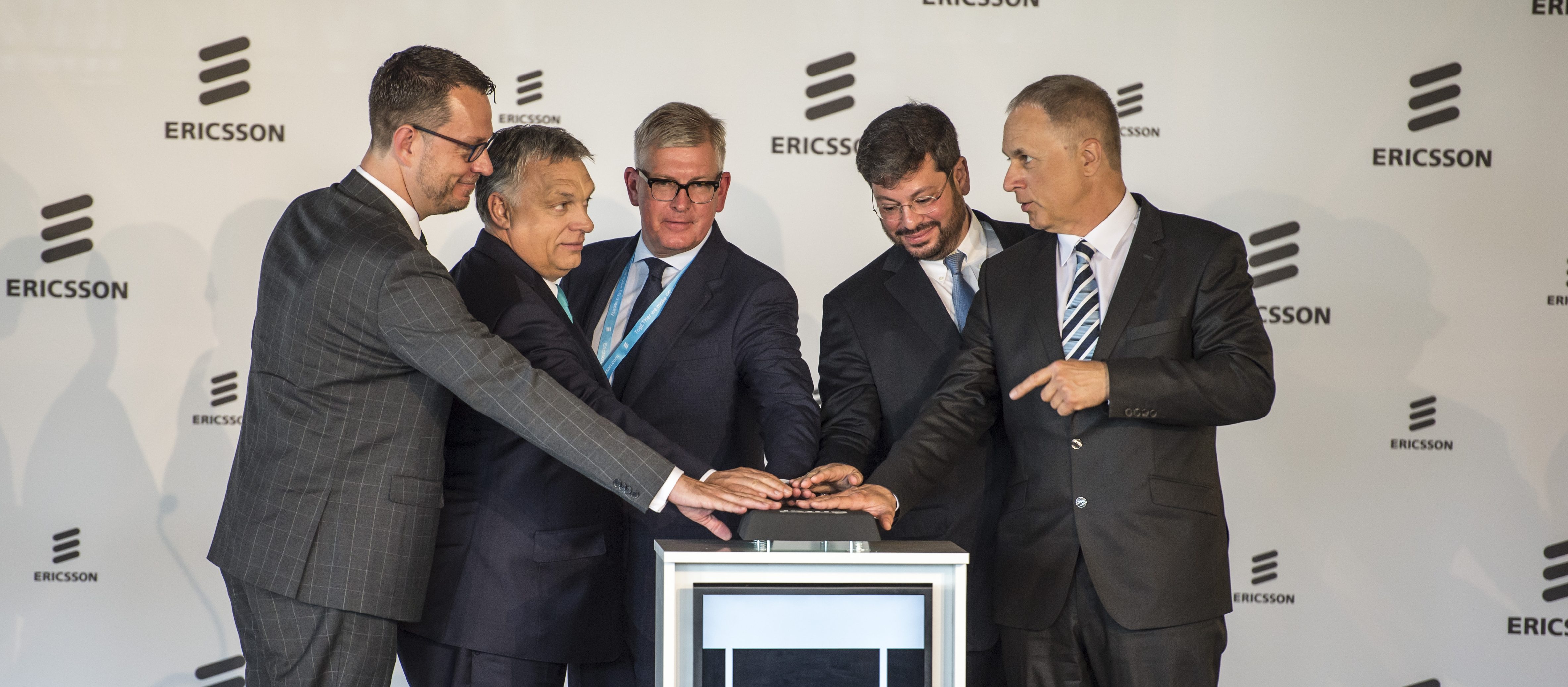
The Prime Minister added that this is clearly visible in Hungary’s tax system, in its budget management, in its system of investment support, in foreign policy, in its defence of borders, and in migration policy. Hungarians, he said, follow their own logic, and in this they have good characteristics; like the Swedes, they are similarly independent in their language and in their mentality. Mr. Orbán said that Hungarians do well when they are able to shape reality according to their own mentality and will, and as a politician he sees this as the essence of innovation.
He stressed that from the beginning Hungarians stood alongside Swedes among the European pioneers in telecommunications. Thanks to Tivadar Puskás, Hungary rapidly advanced to the forefront of the telecommunications sector, he noted, and this was apparent to Lars Magnus Ericsson, the founder of Ericsson and father of telecommunications in Sweden: in 1911 Ericsson was this sector’s first foreign investor in Hungary. Mr. Orbán observed that this was a historic moment for Hungarians, who more than one hundred years ago formed a strategic alliance with Swedes, perhaps one step ahead of the world.
He emphasized that the Government would like to create a similar competitive advantage now, when revolutionary change is sweeping through the telecommunications sector and the entire world.

The Prime Minister said it was an encouraging sign that in recent years the digital economy has contributed approximately one quarter of Hungary’s economic development. He described the sector as now being one of strategic importance, adding that there is a need for a few more thousand SMEs with export capability, and also around ten thousand young engineers and IT specialists.
He stressed that this is why the Government has supported the growth of the sector, and continues to do so: between 2010 and 2014 it assisted the development of more than 1,100 companies, while between 2014 and 2021 almost 130 billion forints will be invested in the development of telecommunications, benefiting more than eight thousand firms. Mr. Orbán stated that so far the Government has signed strategic agreements with eleven players in the sector, and this work will continue.
The Prime Minister observed that the concepts of “dataism”, information flow and technology are now spoken of as a new movement in economic philosophy, which opens a new era in the history of 21st-century humanity. He stated that “The leaders of Hungary must be identified not only in politics, but in the economy, in science and in intellectual life, so that those who want to hold their own in the battles for the future must learn to navigate on the ocean of data streams and information flow.”
In economic policy the Hungarian government has committed itself to this future, he declared: it wants to be a conqueror and a winner in the ever-expanding world offered by a science which shows explosive development. Therefore the Hungarian government has created the Ministry of Innovation and Technology, he noted, so that Hungarians may rank among those nations discovering and conquering the future. He stated that it has recognised that the countries which will be competitive will be those which prepare their workers and companies to employ the new technologies.

The Prime Minister also recalled that after the fall of communism Ericsson did not establish an assembly plant or a components factory in Hungary, but immediately opened a software development centre. He said that the company instantly recognised that Hungarian intellectual capital is of a truly European quality, and by 1992 it had cooperated with the Budapest University of Technology to establish a laboratory for research into high-speed networks. Mr. Orbán quoted Ericsson’s former president who, when asked why his company had come to Hungary, said that it moves to where the knowledge lives – and Hungary has always been the home of knowledge.
The Prime Minister said that he is proud that on the banks of the Danube, immediately neighbouring the University of Technology and ELTE University, one may now find one of Ericsson’s largest R&D centres, one of Hungary’s largest and most modern server rooms, the Ericsson innovation space and Ericsson Garage.
Mr. Orbán announced that his talks with the CEO had revealed that there are four things which can make their strategic alliance successful, and these can give them an advantage in global competition. There are few countries in Europe, he said, where these four elements exist together: outstanding specialists; modern training founded on a large knowledge base; government support for R&D; and budgetary policy showing a commitment to the sector.
